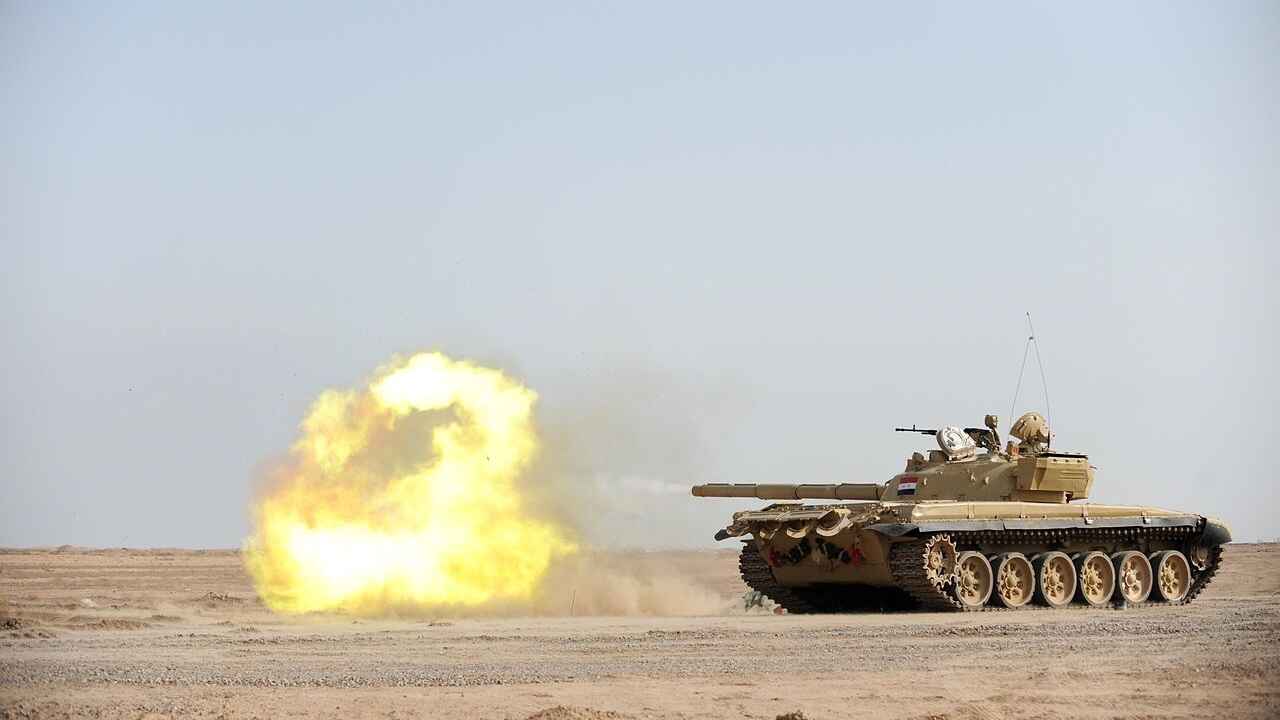
Russia’s ‘Africa Corps’ Has New Armored Vehicles
Moscow has sought to establish a greater presence in North and West Africa, and the “Russian Expeditionary Corps” is leading those efforts.
The Kremlin has struggled to replace the combat losses of its armored vehicles—notably its main battle tanks (MBTs)—in Ukraine, and has even had to refurbish vehicles dating back to the Cold War. However, it was still able to supply the Russian Expeditionary Corps (REK) with several dozen vehicles.
According to recent reports, the Russian Ministry of Defense provided the REK—commonly known as the “Russian Africa Corps”—with seven T-72B3 MBTs, five BMP-3 infantry fighting vehicles (IFVs), and more than 50 other vehicles that included BTR-82A armored personnel carriers (APCs), Spartak and Linza armored cars. The equipment was recently spotted as part of a convoy in Mali, believed to be en route to the capital of Bamako.
“The presence of cutting-edge platforms such as the Spartak and KamAZ-4385 highlights Russia’s intent to equip its African contingents with modernized equipment,” The Defence-Blog reported. “This latest development reflects Russia’s deepening involvement in Mali, where it has been increasing its military support to the transitional government. The deployment follows a series of agreements between Moscow and Bamako aimed at enhancing Mali’s security infrastructure amid ongoing instability in the Sahel region.”
Russia’s Africa Corps: What We Know
Moscow has sought to establish a greater presence in North and West Africa, and the REK is leading those efforts. The unit was created last year as a replacement for the now largely defunct Wagner Group, the mercenary unit that had played a significant role in Russia’s agenda in Africa before being deployed to the frontlines in the Ukrainian Donbas region in 2022.
Wagner Group’s founder, Yevgeny Prigozhin died in a suspicious airplane crash in August 2023, just weeks after leading a mutiny that questioned the Kremlin’s handling of the war in Ukraine.
REK is filling the void.
As the Combating Terrorism Center at West Point acknowledged, “The picture of Moscow’s replacement for the Wagner Group—known as Africa Corps—has become clearer over the past several months. For all the hype that Russia’s newest security assistance appendage has garnered, the early story is that it is more of the same, but with less fanfare. Though [the] Africa Corps has strengthened the lines of control that existed between Moscow and their soldiers of fortune, this new security outfit’s mission and operations have been much smaller in scale so far, but still enough to pull former U.S. partners into Moscow’s orbit.”
The choice of name for the new private military contractor (PMC) organization was not lost, either.
“For all the fanfare surrounding Wagner’s infamous rise, the post-mortem has been riddled with significant mystery,” the West Point center added. “What has emerged in its place is the aptly named, Africa Corps, reminiscent of Germany’s Afrika Korps, which plundered the continent during the Nazi regime, and in many ways continuing the Nazi symbolism so deeply entrenched in the Wagner brand. But [the] Africa Corps, unlike Wagner, is a formal project of the Russian state, an expeditionary corps like Wagner but with a command-and-control structure designed to ensure Moscow keeps the leash tight.”
The Africa Corps will be more closely tied to the Russian Ministry of Defense and the Kremlin. It will likely spearhead Moscow’s efforts to secure a stronger foothold in Africa, which may replace Russia’s position in Syria—although as a landlocked nation, Mali won’t offer much for the Russian Navy.
Major Force for Africa
The deployment of 70 to 80 vehicles to Mali could be seen as significant for another reason. As the Ukrainian Ministry of Defense noted, the armor group is a sizeable force for the region, yet it wouldn’t change the dynamics on the front in Kursk or the Donbas.
“The same number of armored vehicles could easily be lost by Russian invaders in eastern Ukraine within just half a week of fighting against the Ukrainian armed forces,” the Ministry of Defense suggested.
Moreover, it will also enable Moscow to lead counter-terrorism efforts in North Africa, while the West has largely retreated from the role.
About the Author: Peter Suciu
Peter Suciu is a Michigan-based writer. He has contributed to more than four dozen magazines, newspapers, and websites with over 3,200 published pieces over a twenty-year career in journalism. He regularly writes about military hardware, firearms history, cybersecurity, politics, and international affairs. Peter is also a Contributing Writer for Forbes and Clearance Jobs. You can follow him on Twitter: @PeterSuciu. You can email the author: [email protected].
Image: Wikimedia Commons.